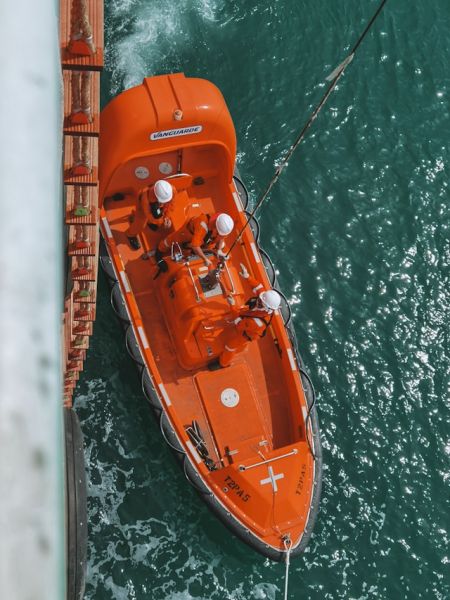CA Aix-en-Provence December 3, 2015 No. 2015/413
Maritime Claims – Provisional Arrest of Ships based on the Brussels Convention of May 10, 1952, for the Unification of Certain Rules Relating to the Provisional Arrest of Sea-going Ships – Belgian Flag.
The Judge’s Control over the Existence of a Maritime Claim within the Meaning of Article 1(N) of the Brussels Convention of may 10, 1952.
The provisional arrest of a ship, as envisaged by the Brussels Convention of May 10, 1952, allows a ship’s creditor to request the President of the Commercial Court in the jurisdiction where the ship is moored to provisionally arrest it based on a mere allegation of a claim.
Article 1 of the said Convention defines an exhaustive list of maritime claims allowing for the provisional arrest of a ship.
 The allegation of a maritime claim against the ship allows for its provisional arrest. However, judges retain their power to assess the nature of the alleged claims. They thus endeavor to verify that the alleged claims can be linked to the exhaustive list in Article 1 of the Brussels Convention.
The allegation of a maritime claim against the ship allows for its provisional arrest. However, judges retain their power to assess the nature of the alleged claims. They thus endeavor to verify that the alleged claims can be linked to the exhaustive list in Article 1 of the Brussels Convention.
This is illustrated by the judgment of the Aix-en-Provence Court of Appeal dated December 3, 2015, in which the Court reiterates that the maritime nature of the debtor’s activities alone cannot suffice to characterize a maritime claim within the meaning of the Brussels Convention of May 10, 1952.
In this case, a company owning a pleasure craft had engaged an accounting and auditing firm for the provision of administrative and accounting services related to proper bookkeeping and legal secretarial duties.
Following the refusal by the ship-owning company to pay the service provider its fees, the latter initiated a request for provisional arrest of the ship, alleging the benefit of a maritime claim within the meaning of Article 1(n) of the Brussels Convention of May 10, 1952.
By order on petition dated February 11, 2014, the President of the Commercial Court of Marseille granted the request.
In order to avoid the lapse of the provisional arrest carried out on the ship, the plaintiff company brought substantive proceedings against the allegedly debtor company.
By urgent summons, the shipowner requested the lifting of the ship’s provisional arrest. By order of July 10, 2014, the President of the Commercial Court of Marseille ordered the lifting of the provisional arrest carried out, on the grounds of its lapse due to failure to bring substantive proceedings within the prescribed time limits. After unsuccessful judicial appeals, the Aix-en-Provence Court of Appeal, ruling on the appeal lodged by the arresting creditor against the Order authorizing the lifting of the provisional arrest carried out on the ship, ruled on the maritime nature of the alleged claim within the meaning of Article 1 of the Brussels Convention and specifically Article 1(n).
In this case, the claim invoked by the arresting creditor corresponded to fees for filing and maintaining annual accounts, for the provision of offices, and for the performance of legal secretarial duties.
In order to justify the maritime nature of its claim, the arresting creditor linked its services to Article 1(n) of the Convention of May 10, 1952, namely, “”disbursements incurred by the master, and by shippers, charterers or agents on account of the ship or its owner””.
In the present case, the disputed services related to the shipowner’s general accounting, which should not be confused with accounting specifically for the ship’s operations. In this case, the Court reiterates that the management fees of a company whose sole asset is a ship are not considered a maritime claim within the meaning of Article 1 of the Brussels Convention of May 10, 1952.
The Court of Appeal indeed considers that:
“”It therefore concerns various commercial services rendered for the benefit of the company HAPPY DAYS and not expenses related to the use or rental of ship Y, or disbursements incurred on account of the ship or its owner in connection with nautical operations, regardless of whether company X has no other activities than the operation of the ship.””
The Court thus specifies that the claim consisting of management fees, registered office domiciliation, and legal secretarial services of a company owning a ship does not constitute a maritime claim. The arresting creditor notably alleged registered office domiciliation fees necessary for maintaining the Belgian flag certificate. This argument proved ineffective in linking the fees of this company to Article 1(n) of the Brussels Convention of May 10, 1952.
In conclusion, the disbursements incurred by shippers, charterers, and agents on account of the ship or its owner (Article 1(n) of the Convention of May 10, 1952) are not understood to include exclusively administrative and accounting services performed for the benefit of a company owning and/or operating a ship.
